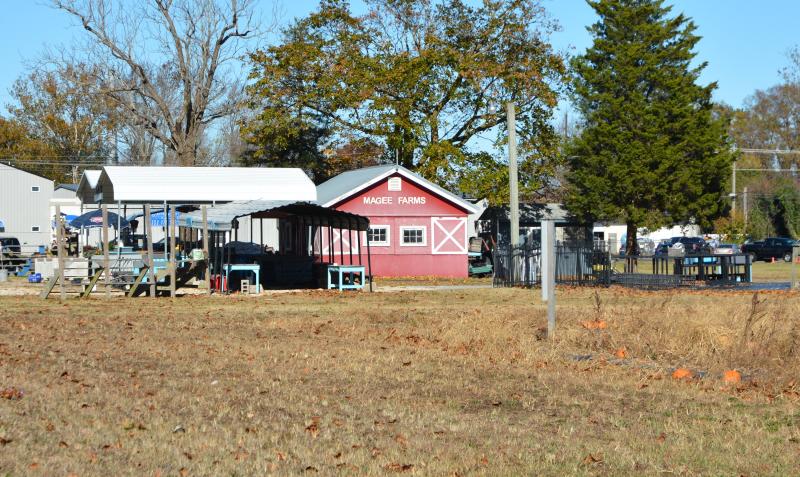No U-pick strawberries for Magee Farms next spring
In response to concerns over a disease that could have a dramatic effect on next year’s yield, Magee Farms will not be planting strawberries at either one of its farming locations.
Magee Farms has been operating its main location in Williamsville, about five miles west of Fenwick Island, since Abraham Lincoln was president. The farm has also had a location off Wescoats Road outside Lewes for nearly 40 years.
In a typical year, owner Danny Magee said the farm would have already planted strawberries to be harvested in the spring. That’s not happening this year, he said.
The technical name for the disease is called neopestalotiopsis leaf, fruit and crown rot. There have been a number of academic reports on the issue. According to a report from North Carolina State Extension, first published in April and then revised in August, the fungal disease can affect every part of the plant – crown, roots, leaves, fruit.
The symptoms were first widely known in the United States in 2018, following an outbreak in Florida. The disease was first confirmed in North Carolina in 2022. The report says the pathogen is most frequently introduced via infected planting stock.
“The emergence of neopestalotiopsis on strawberry, especially the aggressive forms of this pathogen, has resulted in significant crop loss throughout the southeastern U.S.,” said the report, which was co-authored by extension specialist Bill Kline, research specialist Swarna Moparthi and department extension leader Mark Hoffman. “The use of disease-free plants is the primary means of avoiding this disease. At this time, there are no known resistant cultivars.”
Magee said the disease means farmers will have to rethink how they go about doing their business.
In years past, Magee has purchased strawberry plugs from Virginia. Last year, they came from Kentucky. During an interview this time last year, Magee said the farm purchased about 60,000 strawberry plants for the spring 2024 season – 20,000 were planted in Lewes, the other 40,000 at the farm in Williamsville. At 38 cents a plug last year and 47.5 cents this year, Magee said it’s important to get a good return.
“For us, strawberries are the most expensive crop by far,” said Magee. “With a 50% mortality rate, it just doesn’t make sense right now.”
In addition to the high mortality rate, the disease appears to get into the soil and affect strawberry crops in future years, said Magee. That was a risk he wasn’t willing to take, he said.
This is the second year in a row Magee Farms has had to adjust its strawberry growing in Lewes because of outside forces. Last year, the farm reoriented its strawberry patch to run parallel to Wescoats Road instead of perpendicular because deer living in the small patch of woods nearby kept eating the crops.
Looking to next fall, Magee said he’s exploring the possibility of getting strawberry plants from California, but they grow them differently, so he’s still researching what it will take. Instead of plugs, they grow them with single roots, he said.
“We’ll have something figured out for next year,” said Magee.



















































